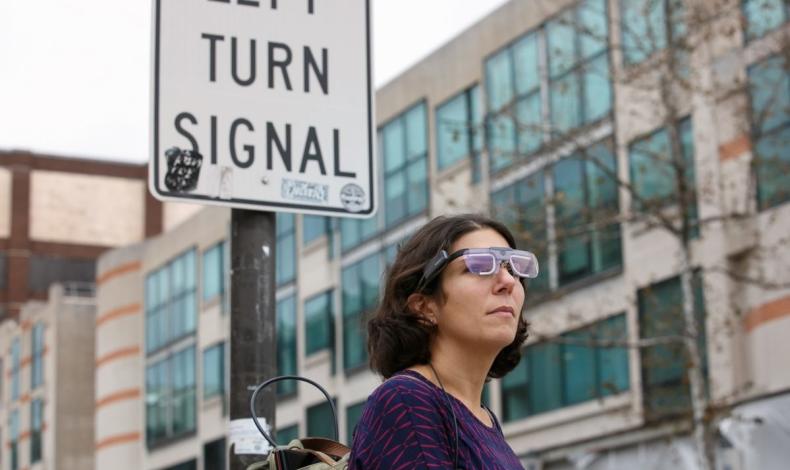Seeing the Road from New Perspectives

Philadelphia is one of a number of American cities experiencing a growth spurt, and it's not alone in facing the challenge of accommodating the evolving transit needs of its residents.
Philadelphia is one of a number of American cities experiencing a growth spurt, and it’s not alone in facing the challenge of accommodating the evolving transit needs of its residents.
Hoping to provide nuance to difficult conversations about infrastructure and land use—while illuminating the safety threats posed to cyclists and pedestrians—Professor Megan Ryerson knew she needed data.
Ryerson is research director of Mobility21, a Department of Transportation-funded project with a wide scope and an ultimate goal of increased mobility and safety on the road.
Her solution: use specialized glasses from the Children’s Hospital at Penn, typically used to measure driver responses in simulated environments, to record the experiences of cyclists and pedestrians. Outfitted with cameras to see what the user sees, and what the user is looking at, the glasses allow researchers to identify dangerous roads and intersections by quantifying users’ experience of the city.
The findings of Ryerson and her team offer a new resource to local transportation officials as they implement more parking-protected bike lanes, which improve rider safety—a positive step toward making Philadelphia a model of a city responsive to the needs of its people.
Ryerson and her colleagues in the Department of City and Regional Planning are also tapping into big data to improve transportation and infrastructure.

